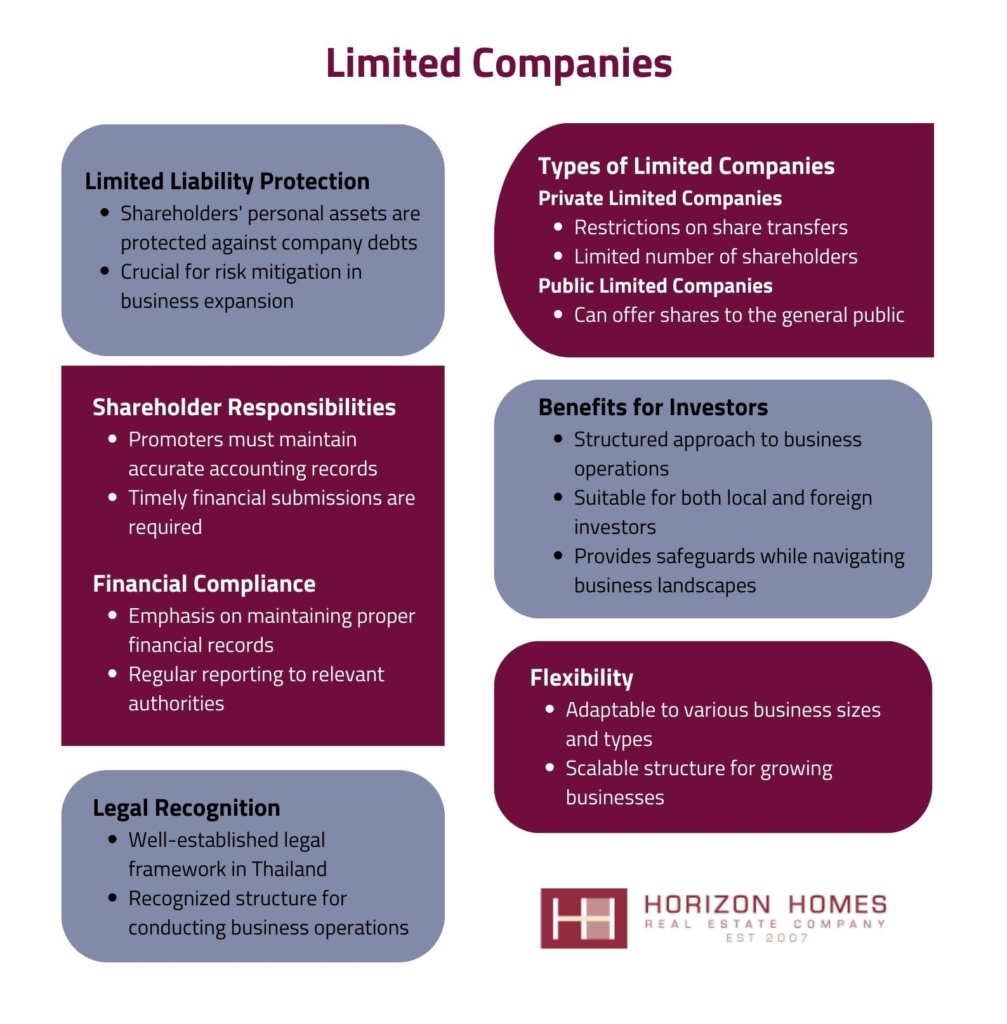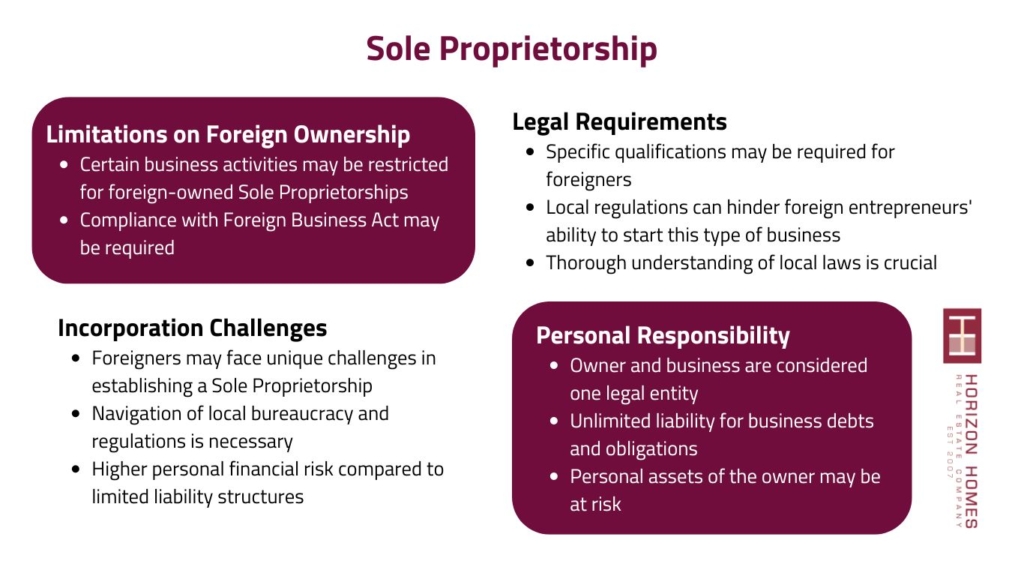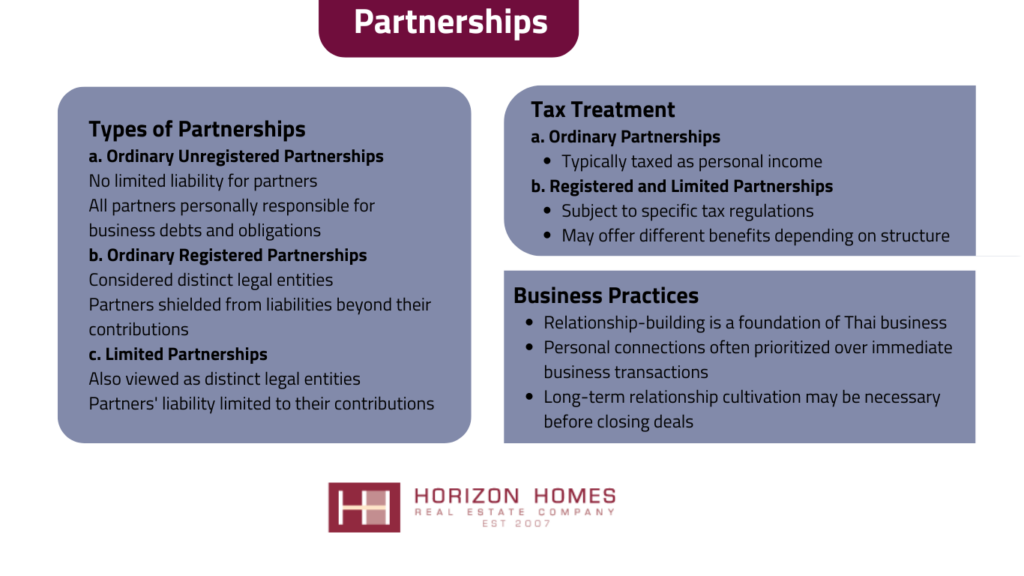Thailand stands as a key player in Southeast Asia’s economic landscape, offering a diverse and robust market that attracts foreign entrepreneurs and investors. With its strategic location, thriving sectors including manufacturing, agriculture, and tourism, and government incentives for foreign direct investment (FDI), Thailand presents numerous opportunities for business expansion. This guide aims to equip foreign businesses with the knowledge needed to successfully establish and operate in Thailand’s vibrant and evolving market.
Understanding the Thai Business Environment
Overview of Thailand’s Economic Landscape
Thailand’s economic landscape is characterized by a diverse mix of agriculture, manufacturing, and services, with a significant focus on tourism, which is a major contributor to GDP. The country is a regional manufacturing hub, especially in automotive, electronics, and petrochemical sectors, benefiting from strong supply chain networks and trade agreements and many opportunities for real estate investment.
The National Economic and Social Development Council (NESDC) reported a GDP growth of 2.3% in the second quarter of 2024, driven mainly by an uptick in private consumption and exports. The NESDC expects GDP growth to range between 2.3% and 2.8% for the entire year, supported by a rebound in tourism and domestic consumption, alongside increased government spending and investment. However, private and public investment have shown signs of decline, which may hinder future growth prospects.
Economic policies have recently focused on digital transformation, infrastructure development, and innovation to drive growth, particularly through the Thailand 4.0 initiative, which aims to transition the economy towards high-tech industries and value-added services. The country has been actively promoting foreign investment and has implemented various policies to attract international businesses for development purposes with many countries like Japan and Hong Kong investing in real estates in the country.
Legal Considerations for Foreign Property Investors
Foreign investment plays a crucial role in Thailand’s real estate market, particularly amidst proposed changes to property ownership laws. While Thailand has traditionally restricted foreign land ownership, there are several avenues for international investors to enter the property market:
- Leasehold agreements: Foreigners can enter into long-term leases for up to 30 years, with the possibility of renewal.
- Condominium ownership: In certain projects, foreigners can own up to 49% of the units.
- Thai Limited Company: Some investors establish a Thai company to purchase property, though this requires careful legal consideration.
Important Update (July 2024): The Thai government has proposed significant changes to foreign property ownership laws. The new legislation aims to increase the foreign ownership limit for condominiums from 49% to 75%. Additionally, there are discussions about extending land lease rights for foreigners. These changes are part of a broader effort to boost foreign investment in the real estate sector. However, the proposals have sparked debate and are still subject to final approval and implementation.
Familiarize yourself with Thailand’s foreign investment laws and regulations. While the country generally welcomes foreign investment, certain sectors have restrictions on foreign ownership. It’s advisable to consult with local legal experts to navigate these complexities.
Business Etiquette and Cultural Sensitivity
Understanding cultural differences is paramount for successful business interactions in Thailand. Thai culture places a high value on relationships, politeness, and hierarchy, which can significantly influence business practices and communication styles. Effective cross-cultural communication requires businesses to invest time in understanding local customs, preferences, and behaviors. This can involve market research, hiring local talent, or forming partnerships with local entities to ensure that communications and strategies align with cultural expectations
Cultural norms significantly shape communication styles in Thailand. For instance, some cultures may prefer direct communication, while others, including Thailand, often lean towards indirect methods. As a business owner, it is crucial to avoid misinterpretation and ensure that messages are conveyed and received correctly. Non-verbal cues, such as body language and facial expressions, also vary across cultures. In Thailand, politeness is paramount; maintaining a courteous tone and humble body language can positively impact negotiations and relationships with your business partners.
Navigating Legal Frameworks
Thailand’s corporate landscape is governed by specific laws and tax regulations that foreign companies must navigate. Here’s a concise overview of the key aspects:
Regulatory Framework
- Civil and Commercial Code (CCC)
- Public Limited Company Act of 1992 (PLC Act)
Withholding Tax
- Rates range from 1% to 15% depending on payment type
- Applies to salaries, service fees, dividends, etc.
- Foreign entities without local presence: 10% on dividends, 1% on interest
Corporate Income Tax (CIT)
- Standard rate: 20%
- Reduced rates available for SMEs
Value-Added Tax (VAT)
- Standard rate: 7% on sale of goods and services
Personal Income Tax
- Progressive rates up to 35%
Special Considerations
- Foreign companies with permanent establishments in Thailand are subject to local tax regulations
- Specific rates may apply to different types of income or business structures
Choosing Your Type of Incorporation
Choosing the right type of incorporation is a crucial step for entrepreneurs looking to establish a successful business. The decision can significantly impact various aspects of your company, including taxation, liability, and regulatory responsibilities.
Limited Companies
A Limited Company is a favored business structure, especially among foreign investors looking to expand into new markets. This model mandates at least three shareholders and imposes a restriction where foreign ownership is capped at 49%. This ownership limitation ensures a degree of local control while still enabling foreign entities to engage in the market.
Sole Proprietorship
A Sole Proprietorship is a business structure owned and operated by a single individual, making it one of the simplest forms of business to establish. This structure allows the owner complete control over operations, but it also brings certain challenges, especially for foreigners seeking to incorporate a Sole Proprietorship in a new country.
Partnerships
In Thailand, partnerships are categorized into three types: Ordinary Unregistered Partnerships, Ordinary Registered Partnerships, and Limited Partnerships.
Setting Up Your Company in Thailand
Setting up a company in Thailand can be an exciting venture for entrepreneurs looking to tap into the dynamic Southeast Asian market. Known for its rich culture, strategic location, and favorable business environment, Thailand offers numerous opportunities across various sectors, including tourism, manufacturing, and technology.
Obtaining Business Visas and Work Permits
Obtaining a Thai visa and work permit involves understanding specific legal issues, with particular considerations for foreign employment and possible exemptions through the BOI.
Non-Immigrant ‘B’ Visa
- Required for foreigners to legally engage in business activities
- Serves as a prerequisite for work permit application
- Application process typically involves: Submitting a valid passport Providing a letter from your employer and demonstrating proof of financial stability
Work Permit requirement
- Essential before starting work in Thailand
- Can only be applied for after obtaining a non-immigrant ‘B’ visa
Work Permit Application Requirements
- Employer must meet specific conditions: Employ at least four Thai nationals for every foreign employee and demonstrate a capital investment of two million baht
- Additional documents may be required (similar to visa application)
Board of Investment (BOI) Exemptions
- BOI provides certain exemptions to standard rules
- Businesses with BOI promotion may bypass typical requirements
- Can make the process easier for foreign investors
Application Process
- Submit required documents to relevant Thai authorities
- May involve multiple government departments (e.g., Ministry of Labor, Immigration Bureau)
- Processing times can vary; plan accordingly
Validity and Renewal
- Work permits and visas have specific validity periods
- Regular renewal is necessary to maintain legal status
- Renewal processes may have different requirements
- Single entry work permit visa fee is 2000 bath and multiple entry fee is 5000 bath
Compliance
- Strictly adhere to the conditions of your visa and work permit
- Report to immigration every 90 days if staying long-term
- Notify authorities of any changes in employment or address
Key Considerations
- Requirements can change; always check for the most up-to-date information
- Consider seeking assistance from a legal professional or visa agency
- Different types of business activities may have specific additional requirements
- Ensure all documentation is complete and accurate to avoid delays
Registering Your Business in Thailand
Registering your business in Thailand involves several essential steps. Company registration usually takes around a week for private companies and a month for public companies.
Book a Company Name
- Submit name reservation to the Department of Business Development (DBD)
- Ensure the name complies with local conventions
- Wait for approval before proceeding
Prepare Registration Documents
- Draft the company’s memorandum of association
- Application form and compile details of shareholders
- Ensure all required documents are complete and accurate
Submit Registration
- File prepared documents with the appropriate government office
- Pay any required registration fees
Register for VAT (if applicable)
- Mandatory if your business generates over 1.8 million baht annually
- Allows for legal operation and effective management of tax obligations
Consider Professional Assistance
- Hiring a Thai lawyer specializing in business registration is recommended
- Can help navigate local regulations and language barriers
- Ensures accurate completion of all documents
Address Language Barriers
- Be prepared for documents and processes to be in Thai
- Consider translation services if not using a local lawyer or agent
Comply with Ongoing Requirements
- Understand and prepare for regular reporting obligations
- Stay informed about any changes in business regulations
Key Considerations
- The process can be complex, especially for foreigners
- Professional legal guidance is often essential
- Careful attention to detail and compliance with Thai law is crucial
- Allow sufficient time for the registration process to be completed
Looking for an Appropriate Office Space
When selecting office space in Thailand, businesses must weigh the merits of serviced offices against traditional setups. Serviced offices offer quick setup and flexibility, ideal for startups or companies needing scalability, albeit at potentially higher ongoing costs. Traditional offices, while requiring significant upfront investment in infrastructure and furnishings, provide more control and may be cost-effective long-term for established businesses.
The choice ultimately depends on specific needs such as company size, growth plans, and financial resources. Factors to consider include ease of setup, investment requirements, flexibility for expansion or downsizing, and the level of control desired over the workspace environment. Businesses should carefully evaluate these aspects to select an office solution that aligns with their operational needs and long-term strategies in the Thai market.
Tips: A 50 percent reduction in corporate income tax for five years (only in special investment promotion zones).
Opening Company Bank Accounts
Opening a corporate bank account in Thailand is crucial for managing your business’s finances effectively.
Selecting a Bank
- Consider factors such as fees, services, and customer support
- Major Thai banks often offer tailored business account options
- Evaluate international transfer capabilities if relevant to your business
Account Types
- Corporate savings accounts: Generally offer interest but may have withdrawal restrictions
- Current accounts: Typically used for day-to-day transactions
- Understand the differences in terms, fees, and features
Required Documentation
- Business registration documents
- Tax ID
- Identification documents for company directors
- Additional requirements may vary by bank
Setting Up Online Banking
- Essential for efficient financial management
- Allows remote monitoring of transactions
- Facilitates digital fund transfers and bill payments
Understanding Account Policies
- Withdrawal processes and limits
- Interest rates on deposits
- Monthly or annual fees
- Minimum balance requirements
Cash Withdrawals and Fund Transfers
- Familiarize yourself with bank-specific requirements
- May involve forms and identification verification
- Understand limits on daily withdrawals or transfers
Ongoing Management
- Regular monitoring of account activity
- Compliance with Thai financial regulations
- Timely reporting of any changes in company structure or ownership
Real Estate Investment in Thailand

Thailand’s property market offers diverse opportunities for foreign investors, from bustling urban centers to serene island retreats. One standout location that has been gaining traction among international property buyers is the island of Koh Samui.
Koh Samui Real Estate Market
Koh Samui’s real estate market, exemplified by developments like Horizon Homes Samui, represents the high-end, luxury segment of Thailand’s property investment landscape. With its combination of natural beauty, modern amenities, and potential for strong returns, Koh Samui continues to attract discerning investors looking for both lifestyle and financial benefits in their real estate investments. The island’s real estate market caters to a range of preferences, from high-end villas to more modest condominiums, attracting investors from around the globe, particularly from the United Kingdom and Hong Kong. For more on Koh Samui real estate market investment
Investment Potential
The Koh Samui property market has shown resilience and growth potential. As of 2023-2024, luxury villas and sustainable properties are in high demand. Investors can expect attractive rental yields, with high-end properties potentially yielding between 8-10% annually, and some exceptional properties even reaching up to 30% per year.
Conclusion
By understanding both the general business landscape in Thailand and specific opportunities in sectors like real estate, you’ll be well-equipped to navigate the Thai business world successfully. Remember to always respect local customs, build strong relationships, and seek professional advice when dealing with complex legal or financial matters. The evolving real estate market, especially with the potential changes in foreign ownership laws, presents an exciting opportunity for international investors looking to enter the Thai property market.





